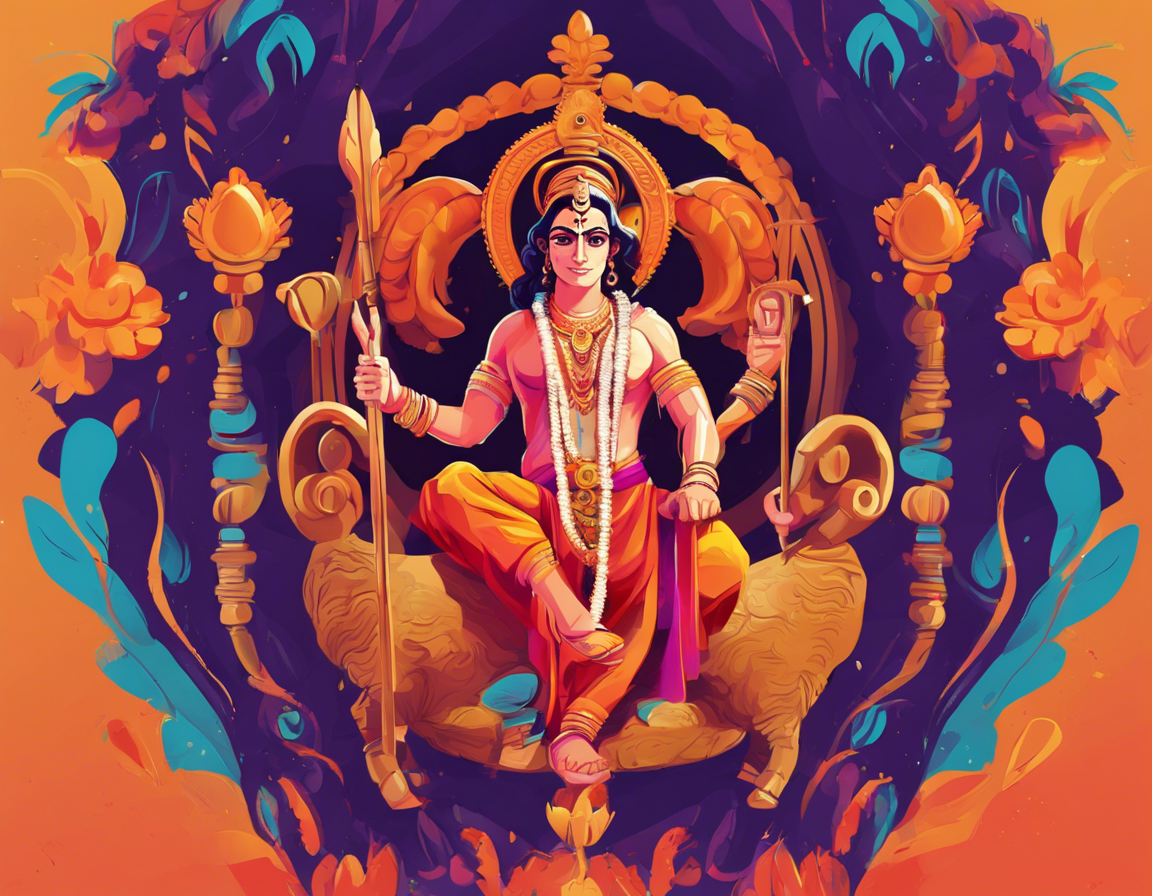As an important Hindu festival, Ram Navami signifies the birth of Lord Rama, the seventh incarnation of Lord Vishnu. Celebrated in the Hindu month of Chaitra, which falls in March or April according to the Gregorian calendar, this auspicious occasion is observed with great fervor and enthusiasm. Devotees across India and the world partake in various rituals, puja, bhajans, kirtans, processions, and other festivities to commemorate the birth of the divine prince.
The Significance of Ram Navami
Ram Navami, also known as Rama Navami, holds immense significance for Hindus. It signifies the birth of Lord Rama, who is revered as the embodiment of righteousness, virtue, and ideal kingship. Lord Rama’s life and teachings have been chronicled in the epic Ramayana, which serves as a moral compass for millions of people worldwide. His unwavering devotion to duty, truth, and dharma inspires generations to uphold values and principles in their lives.
Celebrations and Rituals
On Ram Navami, devotees wake up early, take a purifying bath, and adorn their homes and temples with flowers and rangoli. The day begins with prayers and devotional songs dedicated to Lord Rama. Many people observe fasts and visit temples to seek the blessings of the divine couple, Lord Rama and Goddess Sita.
One of the highlights of Ram Navami celebrations is the recitation of the Ramayana. Devotees gather to listen to the timeless epic, which narrates the life and adventures of Lord Rama, his exile, the abduction of Goddess Sita by Ravana, and the ultimate victory of good over evil.
Another important ritual is the performance of aarti, where devotees sing hymns, light lamps, and offer prayers to Lord Rama. Some devotees also organize processions carrying idols or portraits of Lord Rama, accompanied by chants and bhajans. These processions traverse through the streets, spreading the message of love, devotion, and righteousness.
Fasting on Ram Navami
Fasting is a common practice observed by many devotees on Ram Navami. It is believed that fasting purifies the body and mind, and helps in focusing on spiritual practices. Some people observe a complete fast, abstaining from food and water for the entire day, while others opt for a partial fast, consuming fruits, milk, and other light offerings. The fast is broken in the evening after performing the evening puja and offering prasad to the deity.
Offerings and Prasad
Devotees prepare special offerings and prasad to be offered to Lord Rama. It is customary to prepare sweets like panchamrit, kesari, fruits, and kesaribhaat, which are then distributed as prasad among family members and friends. This prasad is believed to be blessed by the divine and is considered auspicious.
The Importance of Chanting the Name of Rama
Chanting the divine name of Rama, known as “Rama Naam Jap”, holds immense significance during this festival. It is believed that repeating the name of Rama with devotion and sincerity can purify the mind, elevate the soul, and bestow divine blessings. Devotees engage in continuous chanting of “Sri Ram Jai Ram Jai Jai Ram” or “Hare Rama Hare Rama, Rama Rama Hare Hare” to invoke the presence and grace of Lord Rama.
FAQs about Ram Navami:
Q1: When is Ram Navami celebrated?
A1: Ram Navami is celebrated on the ninth day of Chaitra Navratri, which usually falls in March or April.
Q2: What is the significance of Ram Navami?
A2: Ram Navami marks the birth of Lord Rama, who is considered an embodiment of virtue, righteousness, and ideal kingship.
Q3: How is Ram Navami celebrated?
A3: Ram Navami is celebrated with prayers, bhajans, kirtans, recitation of the Ramayana, fasting, temple visits, processions, and the chanting of Lord Rama’s name.
Q4: Can people of all ages observe a fast on Ram Navami?
A4: Fasting on Ram Navami is a personal choice. People of all ages can observe fasts according to their health and capabilities.
Q5: What are some traditional dishes prepared during Ram Navami?
A5: Some traditional dishes prepared during Ram Navami include kesari, kesaribhaat, panakam, and fruits.
Q6: Is it necessary to visit a temple on Ram Navami?
A6: While visiting a temple is a common practice on Ram Navami, individuals can also celebrate the festival at home through prayers, rituals, and devotional activities.
Q7: How does chanting the name of Rama benefit devotees on Ram Navami?
A7: Chanting the name of Rama is believed to purify the mind, elevate the soul, and attract divine blessings, making it an integral part of Ram Navami celebrations.
Q8: What is the significance of distributing prasad on Ram Navami?
A8: Distributing prasad on Ram Navami is considered auspicious as it symbolizes the sharing of divine blessings with others and fostering a sense of unity and love among people.
Q9: Are there any specific mantras or chants recommended for chanting on Ram Navami?
A9: Some popular mantras and chants for Ram Navami include “Sri Ram Jai Ram Jai Jai Ram” and “Hare Rama Hare Rama, Rama Rama Hare Hare”.
Q10: How long is the fast observed on Ram Navami?
A10: The duration of the fast observed on Ram Navami varies from individual to individual. Some may observe a full-day fast, while others may opt for a partial fast with specific dietary restrictions.
In conclusion, Ram Navami is a joyous occasion that allows devotees to immerse themselves in devotion, spirituality, and the timeless teachings of Lord Rama. By partaking in the celebrations, rituals, and observances associated with this auspicious festival, individuals can seek blessings, cultivate virtues, and honor the legacy of the divine prince who continues to inspire millions with his life and deeds.
